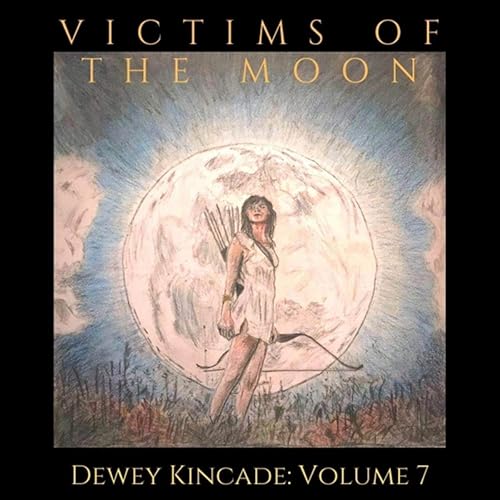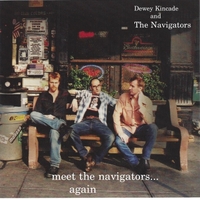
There was a cascade of characters popping in and out of my life at that moment. My band Satori was recording an album. I was really proud of the work that we were doing, but it wasn't clear if we would every play together after the Summer. Our bass player, Becky, was moving to Michigan. I had asked another friend, Matt Frederick, to join, to soften up the sound. Meanwhile I was working two jobs to help pay for school. I was teaching a video class with my friend Amy, and I was working at the Courier Journal selling subscriptions.
The chronology of the events of that summer is difficult to piece together all these years later, but many of the moments stand out. I began a brief love affair with a gal named Jo. She was also in a transient moment in her life. What made it particularly surreal was the fact that I had had a crush on her when I was in first grade. This gave the relationship a kind of culminating effect. Like any love affair there were nights of heatfelt openness, but she kind of disappeared in the middle of the summer, and the relationship didn't quite end. It just dissipated into the ether. There is a lot of her in this song.
But the beautiful world that I reference in the song were the circles that I was wondering in and out of, and not feeling at place in. I remember one moment that summer when I was at a house that Jason Noble and Jeff Mueller lived in. I ran into a woman that I had tried unsuccessfully to date in high school, and I had told her as much months earlier, but she was with some other guy. I felt stingingly out of place.
Another moment I remember fondly was on a particularly long day. I had managed to get myself fired from the Courier Journal, because I had my days wrong. I walked from downtown to the Highlands where my friend Amy lived. We were walking around, and my friend Carrie Cooper spotted me and pulled over and invited me to a dinner in Westport, Kentucky. I accepted, and I was whisked away. It was an unusual night. These were not people that I spent a lot of time with, but I had been floating in and out of myself that summer, and as I say, I was moving in and out of circles. The house I had been brought to was on the river, and I remember having a quiet dinner and watching as a barge floated silently by. It seemed like a beautiful world, but one that I didn't belong in.
The summer came to an end, and I found myself at Kenyon College for my freshman year. There was a ceremony for the incoming freshman class, and I remembered seeing a guy with a kind of mohawk pony-tail in a robe carrying a banner for the convocation (it turned out to be Dave Le Compte). Something about seeing this punk-rock looking guy in a formal robe struck a chord with me. He seemed a symbol of the two different worlds at that moment.
I don't know when I started writing that song, but I know that I finished it in my dorm room in Lewis. It was like the first week of school, I think. I brought that transience with me, and I found myself moving in and out of social settings a lot. It was a very exciting time, but I also felt socially awkward too. For some reason I would be hanging out with a group of people and I would feel this painful sense of being out of place, and I had to leave, but then when I left I would feel a sense of loss like I should go back. I didn't feel settled in a group, and I didn't feel settled when I was alone.
I suppose part of it was that I had been thrown out of a routine that I had understood into a new routine that I was just starting to make out. That was around the time that I started going by Dewey. Dewey was already a nickname, but it hadn't yet become my name. I began introducing myself as Dewey, because it gave me a persona to hide behind. I could be me without having to be me. Plus, I might half a dozen Andrews in the first week.
Another part, though, was that I didn't feel like I belonged in college at all. I truly believed that I was on the wrong path. I was supposed to be pursuing music, and not in school for four more years. I didn't exactly know how to escape, and I felt like the amazing person I had become over the many years of high school was gone, and nothing had come to replace him. I was an actor playing the part of Dewey Kincade, and I hadn't written all the words yet. It was a feeling that would last all year.
About the recording:
Jeff Faith: Upright Bass
Tonya Buckler: Backing vocals
Steve Sizemore: Percussion
This is one of the few tracks I recorded in New York that survived the crash of my hard drive. I don't know why I had backed it up all by itself. By the time I got around to this one I ended up re-recording a lot of it (and adding Steve, Tonya, and Jeff). I spent a lot of time on the slide part, but only because I'm not a slide player. A good slide player would have nailed it in one or two takes. Sigh.
Originally, I sang backup with myself on all the words, but when I brought Tonya in to sing, she nixed that idea. She said it didn't feel right, and she was right. This is why it's great to work with musicians who are also songwriters. They tend to hear what they are doing as serving the song, and they won't do it, if it doesn't serve the song.
![Meet the Navigators... Again [Explicit]](https://m.media-amazon.com/images/I/71GgejEaE-L._SS500_.jpg)
